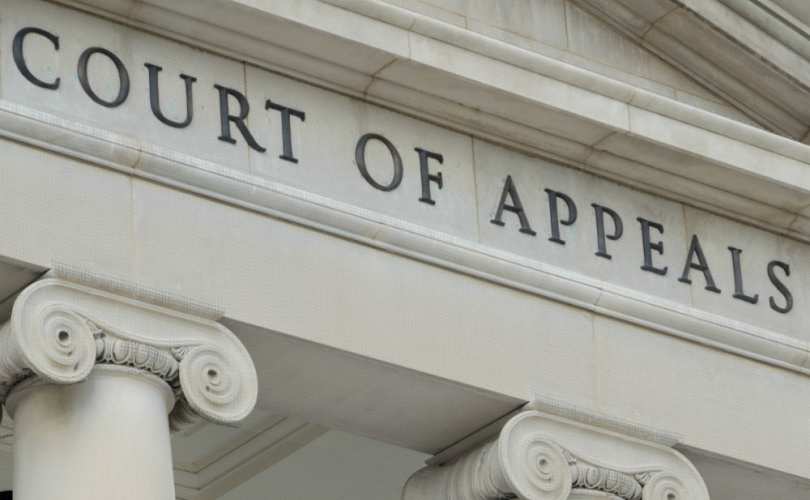People v. Silburn
New York Court of Appeals
2018 NY Slip Op 02286
Decided on April 3, 2018
Issue: 1) Whether defendant was denied his right of self-representation when the trial court denied his request to proceed pro se with “standby counsel” and 2) whether defendant was deprived of a fair trial when the trial court precluded psychiatric testimony, proffered for the purpose of determining voluntariness of defendant’s statements to the police, for failure to serve notice on the People pursuant to CPL 250.10.
Holding: The Court of Appeals held that 1) a defendant is not denied his constitutional right to self-representation when he requests to defend pro se under the condition that counsel continues to assist him at trial; 2) a defendant must give sufficient notice required by CPL 250.10 to the prosecution when there is an intent to present psychiatric evidence for the purpose of demonstrating the defendant’s mental capacity to determine whether his statements to the police were voluntary. Further, notice under CPL 250.10 is not limited to evidence offered in connection with a complete defense.
Facts: In August of 2011, police stopped the defendant while he was driving a stolen car with a suspended license. The police searched the defendant, found a loaded handgun in his jacket pocket, and proceeded to seize it. After the seizure of the gun, the defendant commented that he would have shot the officer had he not drawn his gun so quickly.
At the precinct, after the defendant had waived his Miranda rights, he admitted to stealing the car at gunpoint and was indicted thereafter for criminal possession of a weapon in the second degree, aggravated unlicensed operation of a motor vehicle in the third degree, and other counts.
The day the defendant was taken to the precinct, police transported him to a hospital for a psychiatric evaluation. A year later, the defendant was examined by two psychiatrists and a competency hearing was held. Defense counsel questioned the defendant about his history of mental illness and schizophrenia symptoms the defendant exhibited, but the court determined the defendant was competent enough to stand at trial.
Two weeks before trial, in 2013, the defendant requested to proceed as pro se but indicated to the court that he wanted “limitation” with his counsel. The court then informed the defendant that he could choose to either have a lawyer or to not have a lawyer. The record did not reflect any response from the defendant and defense counsel continued to represent him at trial. The issue was raised again at voir dire and, once again, the court told the defendant that he had the right to represent himself either with or without an attorney but that he couldn’t have dual representation. The court denied the defendant’s request to “go pro se with standby counsel.”
At trial, defense counsel argued that the defendant was not mentally capable of voluntarily waving his Miranda rights after informing the court that the evaluating psychiatrist had diagnosed the defendant as “bipolar, with psychotic features.” The court precluded testimony of the psychiatrist—which defense counsel sought to introduce before the jury—after concluding that defense counsel’s failure to serve a CPL 250.10 notice prejudiced the People.
The defendant was convicted of criminal possession of a weapon in the second degree, aggravated unlicensed operation of a vehicle in the third degree, and another related offense. The Appellate Division affirmed and the defendant appealed to the New York Court of Appeals.
Analysis:
Representation
The defendant argued that the lower court erred when it denied his requests to proceed pro se without conducting further inquiry. On the other hand, the People asserted that the court did not err in denying the defendant his requests because the defendant failed to clarify that he intended to represent himself without counsel.
A defendant in a criminal case may defend pro se if 1) the request is unequivocal and timely asserted; 2) there has been a knowing and intelligent waiver of the right to counsel; and 3) the defendant has not engaged in conduct that would prevent a fair and orderly presentation of the issues. People v McIntyre, 36 NY2d 10, 17 (1974).
In People v. Payton, the Court of Appeals determined that a defendant’s request to proceed pro se was not unequivocal where the defendant failed to demonstrate a clear intention to represent himself without any professional assistance. Payton, 45 NY2d 300, 314 (1978). Further, in the People v. Mirenda, the Court rejected the defendant’s argument that a defendant has a constitutional right to assistance of “standby counsel” while defending pro se. Mirenda, 57 NY2d 261, 265 (1982). The Court in People v. Rodriguez also held that a defendant “has no constitutional right to hybrid representation.” Rodriguez, 95 NY2d 497 at 502 (2000). In other words, the constitution guarantees only two options with regard to representation: self-representation, meaning the defendant represents himself or herself alone, or representation by counsel and only counsel; the constitution does not guarantee a pro se defendant “standby counsel.”
The Court of Appeals determined that, here, the defendant’s conditional request (the request to proceed pro se with standby counsel) was equivocal. Thus, the Court concluded that the lower court did not err in denying the defendant’s request. During voir dire, the Court noted, defense counsel informed the court that the defendant wanted to question prospective jurors and witnesses himself in addition to questioning conducted by defense counsel. The Court concluded that this request was neither a waiver of the defendant’s right to counsel nor an invocation of the Sixth Amendment right to counsel. Instead, the Court interpreted this request as a request to defend pro se with cocounsel—hybrid representation that is not guaranteed by the constitution.
Here, the defendant further urged that a court should conduct in-depth inquiry when a defendant requests to proceed pro se with “standby counsel” to determine whether the defendant still wishes to represent himself. In this case, the record provides no indication as to whether the defendant wanted to proceed pro se or with counsel; however, the record makes clear that counsel continued to represent the defendant throughout the trial. The Court of Appeals disagreed and held that further questioning by the lower court is not required after the court has explained that the defendant may either choose to defend pro se (without any assistance from counsel) or to have representation by counsel and after denying the defendant dual representation thereafter.
Psychiatric Testimony
The defendant’s following argument involves the application of CPL 250.10, which prohibits a defendant from introducing “psychiatric evidence” regarding mental capabilities at trial unless the defendant provides the People with 30 days’ notice. Pursuant to CPL 250.10(2), these provisions are required when “psychiatric evidence” is offered in connection with a defense.
Here, because the defendant did not give the 30 days’ notice CPL 250.10(2) requires, the trial court prohibited the defendant from presenting to the jury testimony from the psychiatrist. The defendant, however, argued that the trial court erred in prohibiting the unnoticed testimony. Specifically, the defendant asserted that because he was only seeking to introduce psychiatric testimony to challenge the voluntariness of a confession—not to challenge to a defense—he was not subjected to the notice requirements under CPL 250.10(1). The Court of Appeals was unconvinced.
Previously, the Court of Appeals held that CPL 250.10(1)(c) functions as a “catch-all provision that contemplates a defendant’s use of psychiatric evidence in connection with any other defense.” People v. Almonor, 93 NY2d 571, 578 (1999). Here, the defendant interpreted “any other defense” to mean that the statute limits admission of psychiatric evidence to be offered in support of a “complete defense” to the element of the crime. However, the Court of Appeals determined that voluntariness could be a complete defense to the crime if a defendant’s confession was the primary evidence of guilt, so the defendant here was required to give the People 30 days’ notice.
The Court of Appeals further concluded that the defendant misconstrued legislature’s intent in enacting CPL 250.10. When legislature enacted the statute, the Court explained, its primary goal was to “eliminate surprise and promote fairness at trial by allowing the People . . . the opportunity pretrial to obtain otherwise privileged psychiatric evidence to rebut defendant’s affirmative use of the evidence at trial.” The Court concluded that to “use unnoticed psychiatric evidence without good cause . . . would be contrary to the legislative intent.” In addition, the Court determined that proper notice was necessary to avoid delays from adjournments that might occur as a result of the People’s surprise notice and last minute opportunity to rebut the proposed evidence.
Finally, the defendant argued that, contrary to the trial court’s finding, the People were not prejudiced by the defendant’s “surprise” evidence because the People were already aware of the defendant’s mental illness. The Court of Appeals also rejected this argument, holding that the People’s possible knowledge of a defendant’s mental illness does not give notice of the defendant’s intention to introduce evidence regarding the voluntariness of statements to the police. Moreover, without notice, by law, the People cannot review the defendant’s confidential medical records and, thus, cannot have a mental health expert “of their choosing” examine the records.
The Court of Appeals affirmed the order of the Appellate Division.

